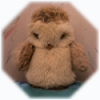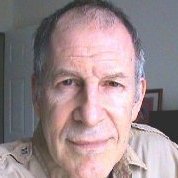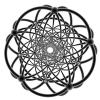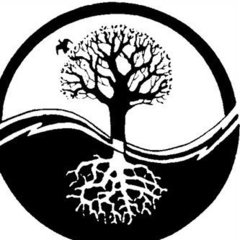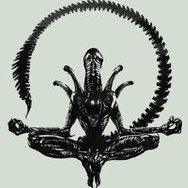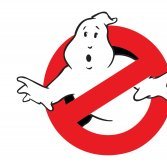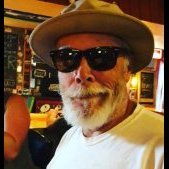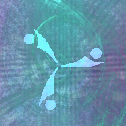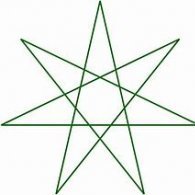Search the Community
Showing results for 'Dream'.
Found 129 results
-

The difference between waking reality and dream reality
idiot_stimpy posted a topic in General Discussion
When we think of both dream and supposed waking life, we think they are completely different. However they are different in stability but in actuality they are quite similar. I think analysing dream reality and uncovering it's rules helps us better understand waking reality. Those could say that waking reality is also dream reality just more stable. When we dream our minds projects a reality. Our 5 senses still work, we have a dream body. In most cases when we dream we treat the dream as real and experience suffering due to attachment as similar in waking reality. What's interesting is within a dream, when we come to the realisation we are just dreaming and all experience is unreal/illusion, our attachment to our situation is greatly reduced including our suffering. Looking into Dzogchen togal recently I couldn't help but question the current waking reality we exist in. Maybe just like in a dream, our bodies and dream is just a projection, in waking reality maybe it is no different. We are experiencing projections of our own mind, our body and senses are also projections. Maybe reality like a dream will have less of a hold on us if we start to believe it might not be as real as it seems. -
Wondering if anyone would enjoy sharing their alien encounters during the dream state here? I had an encounter with telepathic Nordic like humanoids who called themselves the blues. What was peculiar about the encounter was they were giving certain problem solving exercises and then observing, almost like scientists would design an experiment and record the results. I was not meant to see them and they were somewhat surprised when I firstly discovered their presence watching and then was able to interact with them. Conversation was telepathic. They could hear my thoughts and I could hear theirs. My visual picture of what they looked like was an energetic interpretation through my mind. At no stage did I feel any ill intent or malice on their behalf. I actually felt that they had a genuine caring attitude towards humans. I felt that they were many times more advanced than us. I ended the dream on their ship. The interior reminded me of a hotel with no windows. I understood the intelligence gathering of human beings for them was more of a commercial agreement with whom shall remain a mystery. I tried searching for anyone else who had encounter beings that called themselves the blues but haven't found anything yet. I hope others can share their experiences no matter how weird. After all it was only a dream but an extremely vivid one at that.
-
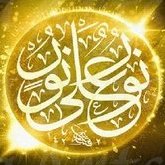
My Experience With Tulku Lobsang (Medicine Buddha & Dream Yoga)
Nuralshamal posted a topic in Buddhist Discussion
Dear Dao Bums, Here's my experience with Tulku Lobsang (known for doing Tummo in -5 degrees celsius on "Story of God With Morgan Freeman" on NGC). I'll share in 4 parts: 1) Intro and Background 2) Medicine Buddha 3) Dream Yoga 4) Wrap Up - To Be Continued 1) Intro and Background I heard about Tummo when I was a child from my dad. He learnt about yoga on a hippie island camp full of naked women burning bras when he was a child, forced to go with my hippie grandmother in the 60s. He had a life changing experience as a child with yoga and mantras, while on this naked women camp. So in his late teens when small yoga and meditation workshops started in the West, he started attending. Buddhism was super famous in my country on the spiritual scene, as it still is in much of Europe with the New Age crowd I would say. While I grew up, my dad told me of naked monks in the snow-clad Himalayas drying wet sheets with their body temperature through magical yoga practices. So now the family saga continues; as an adult, I've also pursued further what my dad exposed me to as a child. This time, I saw Tulku Lobsang with Morgan Freeman. Being able to be comfortable in a t-shirt in -5 degrees on television I took as a "good enough" show of Tummo skill, that maybe I could finally pursue this magical practice myself. However, I still had some doubts. So, when I saw he was coming to my country, I decided to go check him out. If he "checked out" I would be willing to give it a go and fork over my hard earned cash to flight, hotel and the Tummo workshop (when the time comes). With the intro out of the way, let me share how it went! The first day he taught Medicine Buddha. The following 2 days it was one long workshop on Dream Yoga. 2) Medicine Buddha He gave us the mantra and we all chanted together for maybe 5-15 minutes. Then he instructed us step-by-step in the visualisation. After having stabilised the visualisation, we resumed chanting together (we were maybe 20-30 people). During his transmission, I felt a special kind of energy coming into my head center. I felt like it made it easier for me to visualise. I also felt the energy from each of the lights we visualised in all of my body, and felt pleasantly relaxed. Since this day, I've been doing a minimum of 108 reps of the mantra and then the visualisation meditation procedure he explained. Already on the second day of the practice, it's like the energy had increased in power. Now it's growing day by day with my daily practice. So far so good! He's definitely legit. 3) Dream Yoga My dad took me to a dream yoga weekend workshop when I was about 18-19 years old with a Rinpoche visiting my country. I thought the whole idea of lucid dreams and using them for spiritual practice was extremely fascinating, and even at that young age I practiced quite consistently for about 3 months (while also reading his book). However, I had no results whatsoever. Then again when I was in my mid 20s, I picked up the book again and decided to give it a go. I practiced again for about 2 months, but zero results. In my late 20s, I again read yet another book by a tibetan teacher on dream yoga. I tried it again. No results after 1 month. All of the above practices were the usual "visualise a red drop in your throat chakra, surrounded by a white lotus flower with 4 leaves". In this book there was also a tibetan letter on each leaf, and you said them one by one as a kind of mantra for a while, then proceeded to only visualise until falling asleep. However, at the end of this particular book was also a shamanistic bön practice for lucid dreaming. After 1 month of failing with the vajrayana buddhist practice, I tried the shamanic practice. After about 7-14 days, it happened! I was super excited. Then it would happen every single day like clockwork for about a week. However, with each day I felt like I got more and more tired. Like I used up energy while sleeping, instead of regaining it. I remembered a warning from a daoist qigong teacher who had (as usually) dissed buddhist practices, especially their dream practices. He said "night is for sleeping and resting, that's what nature intended". So I thought maybe my bön lucid dreaming practice was sapping my energy and discontinued it. Lo and behold, now I'm in my early 30s, and I was faced with yet another tibetan vajrayana buddhist practice of visualising a red drop in my throat. "Here we go again!" I found myself thinking, however I still had an open mind during the workshop. During the workshop I felt Tulku Lobsang transmitted different states as well as different energies. I also found him to be extremely grounded in Being, never losing connection to himself, even if some of the people were weird or asked weird questions etc. He remained in Being, very relaxed, very present and extremely grounded and Embodied. I was quite impressed! However, no succes with lucid dreaming, neither during the nights between the workshop days, nor during the workshops when we actually slept for 10-30 minutes under his guidance and blessing. I really felt he transmitted a lot of energy during these sleeping sessions on the workshop, but still no lucid dreams. However, now after the workshop, I have actually had 3-4 lucid dreams so far using the typical tibetan buddhist vajrayana practice with the red drop! Something that's never worked for me, even though I've tried it on/off since I was 19. So that also tells me that his transmission is legit! 4) Wrap Up - To Be Continued So to wrap up, Tulku Lobsang is legit! He's extremely grounded in Being, in Presence and in his body, and he really does transmit states and energies. There's no more doubt in my mind - I will glady fork over my time and cash to learn Tummo from him when the time comes -
Have you ever chased a butterfly in your Dreams! Worship of the Immortal of Death is possible. The Lady of the Forest, the Excitement of Every Man! Being a friend to Dong Li, do you know the terror of not being Dong Li's Friend! If you do not join my Sect I'll make you all join anyways! Sadly my master has recently passed and I can no longer do this kind of thing Join my sect and I will even cultivate with you, I Bai Xi who am already worshipped by Trillions of Humans who do not exist. Yes, the old ways are still here and we are not Chicken Brothers here. We are a clean sect, we only practice Zhuang Zhi's Butterfly Dream ... This a cultivation Technique that reaches Dao Heart, Dao Heart can't even see the Emotional Realm I will brag in front of you all, indeed I look the way I do, but do you think laughing at an Immortal Severing Expert will save you forever? I've never seen a woman claim to have a larger size than me nor I have ever not been a Star Elf. If you prove I am not a Star Elf at least, I will refine Gu for you!
-
I've had a string of dreams lately with animals in them, and in the most recent one there was an owl with a peacock on its right shoulder/wing. The owl was walking on the ground. It was brown with some grey. I think the wings were tucked in, but the peacock was like sitting on it somehow. The peacock looked kind of dour? It's tail was closed. I'm pretty flummoxed as to the meaning here. I know these birds are used as symbols of very powerful spiritual forces, but not really too sure about which ones, and even less sure about the meaning of the peacock sitting on the owl. The thing is, this animal was not the main focus in the dream. It was more like this subtle detail that was there while a bunch of other stuff was going on. Yet, it feels like this was actually the major symbol in the dream, but it also didnt want to like draw attention to itself. I've had a similar occurrence with another dream I'll describe below. In this other dream, there was actually a bunch of important things going on, but basically there was this small snake that came out of a small hole and was entirely inconsequential to the rest of what was going on in the dream, yet I knew it was very important. Then some week or so later, I had another dream that was completely serpent oriented. There was a large black snake, very wide and it had the head of lion. The snake had the blackest black scales, but had a white mane and other facial features were white. I feel like the small snake dream was a pre-cursor to this dream. I'm aware of the connection to different ancient gods that feature a lion's head with a snake, although I think this more closely must be yaldabaoth. I'm mostly curious as to the owl-peacock symbol. Any ideas on this?
-
Interesting stuff happens to me in the dream state. I’ve had teachers doing transmissions, empowering mantras, deities visiting, and so on over the years. Usually when that happens, there is a palpably different feel to the dreams. I’ve been lucid in my dreams for a long time now, but when these incidents happen, there is no “dream-like” feel at all - it’s like another dimension as happens in astral/causal realms. Had a dream of dark skinned deity a few weeks back. She appeared before me and punched me hard in the chest. My heart started pulsating violently. Last night/This morning had a dream which was very interesting. Found myself in a state where I was being “attacked” by a being, appearing to me in the form of a girl I just happened to be in an elevator with. As soon as I entered the elevator, it seemed like I was transported to a different realm. The space in the elevator was like a large room. There were bodies wrapped up (mummies) stacked in row after row of what seemed like filing shelves. I realized it was not right, so I stopped and got off. And then I was back where I began, at the lobby of a building, this girl walking in front of me, into the elevator. Same thing happened - I’m back in the same room again! The girl started to float, and her eyes started glowing. I looked away, but she got closer, more menacing. As I turned towards the elevator door (away from the room), a voice in my ear whispered, “Om Phat!” And I took a deep breath, and said, “Om Phat!” And the air felt hot and sharp, like a powerful bomb had gone off. The glowing stopped in the girl’s eyes, as if whatever was reaching out through her was temporarily gone, and there was confused look in her eyes. And then again the glowing started - I took another deep breath, and said, “Om hum phat svaha!”, and the glowing disappeared. The girl and I were back in a normal elevator. The elevator stopped, we got off and went our separate ways. The
-
Consciousness can be very tricky. I saw a movie in which somebody explained how to find out that you are dreaming, in order to control the dream. The clues were unreadable details like the time on the clock or non-functional light switches. Also in the movie, the protagonist later talked to a person in his dream about how it is like to be a dream character. One or two days later, I had a dream. I think it was in a classroom, but unconventional. I talked to the teacher about how my watch is very blurry and unreadable and how this is a clue of being in the dream state, and his clock was blurry, too. But then I tried to switch off the light and it worked ... I think ... not 100% sure. I then woke up and realized I have had a lucid dream. ... But then I woke up and realized that I had been fooled. Pretty weird, isn't it? Not having a lucid dream, but a dream of lucid dreaming. It took me a few minutes to completely realize what had happened. I analyzed my dream and realized that after the dreamt waking-up I thought: "OK, this time I realized that it was a dream, next time I'll try to really gain total control.", so there was no control, thus not really a lucid dream, just typical uncontrollable acting in a dream. P.S.: Hm, this topic might belong to the Tao forum. Admin, please move if you read this!
-
I woke up with this word in my head, and no memory of the dream it came from, just an understanding that it was explained in the dream. The word was "retrodactyl." What can it possibly be?..
-
Greetings to All, Some years ago just before I woke up in the morning, I had a dream, or rather a vision in my dream, of a large Tai Chi symbol with a number underneath it, 07070909. As I opened my eyes, the after-vision of the symbol and the number remained for a couple minutes. This was a vision given to me to make sure that I remembered it. Of course Something was up. Then I opened my email and read the question from a woman asking whether Taoism dealt with the older brother / younger brother dynamic that would correspond to the Cain / Abel dynamic of Judeo-Christianity. I myself of course not knowing except for the dream was able to answer that indeed it does. Of course it took me a minute to realize that the dream was an answer to the question in my email. How so? Since 7 represents Young Yang and 9 represents Old Yang, they correspond to Abel and Cain, the younger and older brothers. Good brothers of course are happy for each other and love each other and would never be jealous of one another or kill one another, but Cain killed Abel out of jealousy, and perhaps Abel had been arrogant enough to trigger Cain to strike out in anger. The proper heart of Cain toward Abel and also of Abel toward Cain would have prevailed if they both had been more mature - Abel would not have been arrogant, and Cain would not have killed him - his brother. How would the parents and siblings feel about this? Bad of course - heart broken. How then to fix the broken hearts caused by immaturity and return the Cosmic Family of the 8 Trigrams to its original state of harmony and beauty? What is the proper order of relationships between the Parents and Children, the Parents as also Husband and Wife, and the Siblings as Younger and Older Brothers and Sisters? The Parents also represent Heaven and Earth and the Children are in between. Each has Mind and Body, which when harmonized perfectly after a period of growing to maturity, form a Divine Personality or Original Mind, which is able to give life to the individual's unique potential and become a Tree of Life. Why were there two 7's and two 9's and 0's in between them? My interpretation is that one 7 represents the mind and the other represents the body, for example. The 0's would be place holders for the 6's and the 8's, which represent Old Yin and Young Yin, each also having a mind and a body. I'll leave it at that, other than to also say that a certain Do-Wan, a tall Mandarin Chinese man, introduced himself to me in another dream in which I was thanking my ancestors in a formal fashion, having prayed the night before to be able to have greater appreciation for my ancestors hard work. Not being Chinese, I wondered how it was that Do-Wan came in my ancestor dream. Someone else I told that dream to pointed out that of course he is one of my guides. (Thanks Do-Wan!)
- 3 replies
-
- tai chi symbol
- dream
-
(and 4 more)
Tagged with:
-
I'm going through an extremely trying and paradoxically difficult time right now, and I had this dream last night that I can't figure out that felt timely and important. I can't remember most of the dream unfortunately, I just recall 2 similar symbols in consecutive dreams. In the first dream I was given a set of black books as a gift. I think I was given these books by a celebrity that I look down on and think is a bad comedian. In the 2nd dream I was given a black leather folio. The thing is the folio was a duplicate of my real life leather folio that I use to carry my computer. I highly value this folio. It serves a valuable function for me, it's beautiful, and well constructed. I think before I was given the black version of my folio, there was this whole setup where there was this girl (that I look down and think is stupid), that I went to school with as a kid. I haven't seen this girl in many many years. So this girl had my same folio, the non-black one, but it had her initials very largely inscribed on the cover. And the dream made a point for even the obscure brand of the folio to be mentioned, like its the same brand even. So it was really driving the point home that we have the exact same folio. And then I was given the black version of my folio. The main connections I'm seeing is the stupid people and the blackness being contained to knowledge. With the book symbol and folio being the case for my computer. Any ideas on this?
-
I am looking for unconventional ways to get lucid dreams, my first idea is to cultivate lot of energy for which i am doing meditation, mental japa , zhan zhuang and practicing celibacy. And hope that high energy may lead to vivid dreams Now lucid dreaming is a sub goal for a bigger purpose and not an end goal.
-
Greetings all. I would like some advice and insight on something which happened to me last night/this morning. I was dreaming that I was repeatedly reciting a Sanskrit mantra. There were no visuals accompanying the sounds, only the mantra, entering my mind, and then me reciting it. As I started to wake from the dream, I was actually reciting the mantra out loud and kept repeating it. When I was fully awake I felt incredible. Is there a reason for this ? Am I being subconsciously prompted to follow a certain path ? A sign from God ? It's still so fresh in my mind which is also unusual as dreams tend to dissipate as time passes.
-
I had a dream where I met someone resembling a guy I used to be pals with back in the uni. In the dream we were is a sort of warehouse, and there he casually jumped off the rafters that were above head height, and I confessed I was wary of doing that, since I have pains and problems with my knees. Than someone else joined in -- and I told them about a cutting pains I have, running down the line from my upper jaw down to the neck and right chest area and to the liver I think? I pulled on it and a sort of a worm came out, or that was the concept I was trying to convey, and they sort of rolled their eyes and went with it - yeah, it's sort of like that. So the worm got tossed out, and they extended palms toward me, I felt warmth. Some unfamiliar music was playing, 5 clean tones played in a loop on a string instrument and two chords on a different string instrument. So the cutting pains have stopped, and the painful swollen lymph nodule I had on the underside of the jaw is gone. I could remember the melody for a while after waking up, but I am not trained in writing down music, so it is gradually drowned out. He had a set of prayer beads with him at times, and more sensitive than most of us were, so he often took his time before speaking, and at times when you got fired up or angry guy would just snicker at you, and you felt like a dolt. I wonder how is he? Didn't hear from him in years.
- 1 reply
-
- 7
-

-
In Chapter 2 of the Zhuangzi, there are two sections where he writes about dreams. One is the famous section about the man and butterfly at the very end of the chapter. In the other section, close to the end, Zhuangzi states, "Eventually there comes the day of reckoning and awakening, and then we shall know that it was all a great dream. Only fools think they are now awake...." Did he believe that the world we are now in is actually just a dream? I keep coming across intellectuals who believe that the world we see is just an illusion of some type. Plato is one ancient example. It sounds like Zhuangzi might be another.
-
Is the conventional interpretation of the Zhuang Zhou’s Butterfly Dream really a misinterpretation? Hans-Georg Moeller certainly thinks so……… THE DREAM OF THE BUTTERFLY—OR: EVERYTHING IS REAL Herbert A. Giles's translation of the famous allegory of the butterfly dream in the Zhuangzi is beautiful, but unfortunately, as I believe, entirely wrong: Once upon a time, I, Zhuangzi, dreamt I was a butterfly, fluttering hither and thither, to all intents and purposes a butterfly. I was conscious only of following my fancies as a butterfly, and was unconscious of my individuality as a man. Suddenly, I awaked, and there I lay, myself again. Now I do not know whether I was then a man dreaming I was a butterfly, or whether I am now a butterfly, dreaming I am a man. Between a man and a butterfly there is necessarily a barrier. The transition is called Metempsychosis. I quote this translation because of its great influence on the Western perception of Daoist philosophy, especially among Western intellectuals and philosophers. Giles's translation of the Zhuangzi and, in particular, his rendering of this allegory is representative of the general understanding of Daoist philosophy in his generation while, on the other hand, it quite obviously contradicts a traditional interpretation of the text in China. Giles's translation of the butterfly dream has little to do with the original. It is rather an interesting transformation of the text into the patterns of "standard" Western philosophy. Perhaps the butterfly allegory became so popular in the West just because of this "Westernization." When one first reads Giles's version, it surely sounds very Chinese—if only because of the Chinese names and the quite "oriental" butterfly. But upon taking a closer look, it turns out to be an exotic disguise of thoroughly Western ideas. Giles's translation can be compared to the food of many Chinese restaurants in Western countries: it looks Chinese, but the cook has, nevertheless, made it wonderfully palatable to eaters accustomed to the local tastes. Giles's version is based on Zhuangzi's recollection of his dream after he wakes up. Philosophically speaking, the story revolves around a central act of consciousness. Once the philosopher wakes, he remembers his dream of the butterfly, and once he starts remembering this dream, he begins to doubt and reflect on his being and on the problems of truth and appearance. In Giles's rendering, Zhuangzi gains an insight into the continuity of the soul within the chain of existence: he understands that he is part of the great cycle of Metempsychosis or the transmigration of the soul. The act of remembering is at the core of this philosophical realization of the truth. It seems to be the point of departure on the path towards the discovery of the truth about the world and one's soul. Giles's butterfly dream story is an interesting blend of motifs from the Western philosophical tradition. It bears a certain resemblance to the final book of Plato's Republic in which Socrates tells the myth of Er, a person who was allowed to visit the underworld. In the underworld, Er witnessed what happens to the souls there: after their lives on earth, they are judged and sent either to a heaven or to a hell. Having spent a certain amount of time in the underworld, the souls return to earth after choosing a new body for their next life. Before the souls re-enter the world, they have to cross the plains of Lethe—or: Forgetfulness. By this crossing, they lose all their memory of the underworld and go on to live without knowledge of the metempsychosis they have undergone. According to this story, it is only through the act of remembrance—through mentally reaching back before the plains of forgetfulness—that human beings can actually realize their true being and fate: the transmigration of souls. Since Plato, remembrance has been a central motif within Western conceptions of wisdom and knowledge, of thinking and of truth. In Plato's Meno, Socrates tries to prove that all knowledge comes from memory by conducting an "experiment" with an uneducated slave: Just by asking the slave simple yes-or-no questions, Socrates helps him "discover" some basic geometrical rules. He concludes that the slave already had an innate geometrical knowledge and only needed some help to actually remember it. In modern philosophy, G. W. F. Hegel depicted recollection as the way that leads to absolute knowledge in the course of his Phenomenology of Spirit. Old-European philosophers indeed often "thought back" to find the truth. In a similar way, Herbert A. Giles's Zhuangzi has to think back and re-member his dream in order to have the re-flection which leads him to re-cognize what is true and what only seems to be. A second core motif of Giles's butterfly dream story deeply rooted in the Western philosophical tradition is expressed by the most often used term in his translation: I. This I and the related question of what this I truly is make up the philosophical thread that runs through the story. Zhuangzi tells a story about himself, he tells how his I in his dream is the I of a butterfly. Then he awakes and Zhuangzi is, as he says, " myself again. " This very I then starts thinking—and what does it think about? About itself and about what it is! Giles's text is from beginning to end about the I and its reflection on its own being. It is an ironic fact, I believe, that in the history of Western philosophy, there are few texts that treat so exclusively and comprehensively the issue of human subjectivity! A third core motif of Giles's butterfly dream story is doubt. As soon as Zhuangzi remembers his dream, he begins doubting. And again, these doubts are rather existential since they are in regard to his inner self. Did Zhuangzi dream about being a butterfly or is he now a butterfly dreaming he is Zhuangzi? The motif of philosophical doubt is of great importance within the history of Western philosophy. Although Rene Descartes' famous Meditations are usually summarized by the "motto" cogito ergo sum or "I think, therefore I am," one might as well use the motto "I doubt, therefore I am." At least after Descartes, Western philosophers are often seen as experts in doubting, as depicted in Auguste Rodin's sculpture The Thinker. The tradition of Western philosophy has combined these three motifs—remembrance, the being of the "I," and doubt—in various ways. One could very well write a history of (modern) Western philosophy by following the development of these notions. In Giles's translation, Zhuangzi appears to be a paradigmatic Western philosopher in an ancient Chinese robe! A fourth Old-European motif which appears in Giles's butterfly dream comes into play at the end of the story: the motif of the transition of a barrier or transcendence. Once Zhuangzi has realized that there is a border between man and butterfly, he also realizes that he himself as a philosopher can have knowledge of this border and thus that he can philosophically go beyond it. Zhuangzi, by his reflection, can overstep the border between dreaming and being awake, between appearance and truth. This motif alludes to the Western—and especially Judaeo-Christian - distinction between immanence and transcendence. A “meditating” philosopher in the West can mentally reach beyond the barriers of worldly immanence and merely apparent reality. In this way, he or she can move to the higher realm of an infinite, divine, and true world, just like the freed prisoner in Plato's allegory of the cave. A fifth Old-European motif in Giles's butterfly dream is closely connected to the previous one—it is the motif of the unreality or at least the relativity of the world of experience. From the perspective of the "awakened" philosopher, Zhuangzi sees through the unreality of his dreams. What he believed to be true while he was asleep, his then this-worldly and temporally limited existence as a butterfly, is finally unmasked as mere appearance, as a realm of only partial reality. Once the barrier is overcome, then what only seemed to be true is seen as it is. The awakened philosopher looks down on his earlier "unenlightened" experience. Only his mental reflection can elevate him to the realm of truth and free himself from the illusions of dreamlike sensual and temporal experience. In Giles's version, Zhuangzi seems to live through the process of a philosophical transition from the dreamlike phenomenal world to the enlightened realm of the noumenal. The most wonderful transformation of the butterfly dream is, in my view, not the one of Zhuangzi in the story, but rather those performed by Herbert A. Giles. Giles's rendering keeps the oriental surface of the story alive, but completely converts the philosophical content into motifs of the Western philosophical tradition. Giles's magical transformation of the story has been overlooked by many of its Western readers who do not have access to the original texts. If one, however, takes a look at what the text literally says (or rather at what it does not say), and at how its ancient Chinese editor Guo Xiang (252-312) explains its meaning, one will see no evidence of the five motifs discussed above. In the Chinese original, the decisive turning point of the story is not remembering but forgetting. And this forgetting also includes the I and its being—it turns out that there is literally no I and no being in the story. Where Giles introduced doubts in the story, there is doubtlessness in the original, and where he advises the philosopher to transcend barriers, the original advises one to accept borders. Finally, while Giles's story seems to indicate the relativity of the dream world of temporal phenomena, the original text highlights the equivalent reality of all experience. If one reads the butterfly dream story along with Guo Xiang's commentary, one sees the text in a Daoist light. The Crucial difference between the plot of this allegory in Giles's translation and in Guo Xiang's edition is Zhuangzl's reaction when he awakes from his dream. While Giles implies that Zhuangzi remembers his dream, no such remembrance is mentioned in the text, and Guo Xiang's commentary makes it perfectly clear that Zhuangzi does not remember the dream—he has, rather, completely forgotten it. Once Zhuangzi—or as he is called in the story: Zhuang Zhou—awakes, Guo Xiang inserts the following commentary: Now Zhuang Zhou is just as ignorant about the butterfly as the butterfly was ignorant about Zhuang Zhou during the dream. When Zhuang Zhou awakes, he is as unaware of his earlier dream existence as the butterfly in the dream was unaware of Zhuang Zhou's earlier waking existence. Since the plot is completely different, the story has to be read in another manner. This being so, I present my own translation based on the Chinese original and Guo Xiang's commentary: Once Zhuang Zhou dreamt—and then he was a butterfly, a fluttering butterfly, self-content and in accord with its intentions. The butterfly did not know about Zhou. Suddenly it awoke—and then it was fully and completely Zhou. One does not know whether there is a Zhou becoming a butterfly in a dream or whether there is a butterfly becoming a Zhou in a dream. There is a Zhou and there is a butterfly, so there is necessarily a distinction between them. This is called: the changing of things. As opposed to Giles's translation, the original is based upon the mutual ignorance of Zhuang Zhou and the butterfly. The text indicates that because of this mutual ignorance, because of the forgetting of previous dreams while being awake and because of the forgetting of previous periods of being awake while dreaming, there are no grounds for devaluating one phase of existence. Both phases are equally authentic or real because each does not remember the other. Because the butterfly does not know about Zhou, it is "self-content." Because Zhou does not remember his dream he is "fully and completely Zhou"—and without any doubts! Since Zhou and the butterfly do not remember each other, because the barrier between them is not crossed, the change between them is seamless, spontaneous, and natural! The harmonious "changing of things" is dependent upon the acceptance of the distinction and not on its transcendence. In the original version of the text the core philosophical motif of the allegory is not remembering but forgetting. Zhuang Zhou's "state of consciousness" is not one of reflection or theoretical reasoning, but rather one of a man who has been emptied of mental reflection. It is quite noteworthy that the word that most frequently occurs in Giles's rendering—the "I," which is used ten times in those few lines, without counting words like "my" and "myself'— does not appear in the original! With this "I," Giles has Zhuang Zhou narrate the story—which is simply wrong, because it is not told from this perspective. Moreover, the "I" becomes, against textual evidence, the necessary subject of the act of remembrance. In Giles's story Zhuang Zhou becomes "myself again"—there is nothing like this in the Chinese text. While Zhuang Zhou emerges as the "subject" of change in Giles's version—he is first a man, then a butterfly, and then once more a man, there is no continuous subject mentioned in the text. The original text rather implies that instead of an "I" and its "individuality," which undergo change (another invention by Giles), there is a kind of "autonomy" for both the butterfly and Zhuang Zhou. There is, strictly speaking, no substantial "I" that is first awake, then asleep, and then awake again. It is exactly because there is no such single, individual—which literally means in-divisible—I connecting them that both the butterfly and Zhuang Zhou can each be so fully real. They are real because they are divisible, not because they are in-divisible! During the dream, the butterfly is fully the butterfly, and when awake, Zhuang Zhou is fully Zhou. In the original text the change is complete: In one's dream one turns into another full reality and thus one is no longer what one was before. One is no longer "oneself' when change takes place. Change turns one I into another. While in Giles's story there is one I that takes on different bodies (like the soul in the course of metempsychosis), there are three phases in the original text, first Zhuang Zhou awake, then the butterfly in the dream, and then, strictly speaking, another Zhuang Zhou after the dream. There is no continuous I that acts as a bridge between these three phases. This is the reason that all three stages can be equally real. The third motif in Giles's story, the moment of, doubt, also has no equivalent in the Chinese text. Since Zhuang Zhou does not remember his dream, he is totally ignorant about the existence of the butterfly, and so has no reason to doubt his existence. Once awake, Zhuang Zhou is, as the text says, "fully and completely" Zhuang Zhou and does not seem to doubt this fact by asking himself strange philosophical questions. He is not "thinking back," but rather as solidly assured of himself as the butterfly was of itself in the dream. Unlike Giles's version ("Now I do not know whether . . ."), there is no question raised by Zhuang Zhou in the original. In its place the conclusion is made by a "neutral" observer: Given the fact that the butterfly during the dream is as assured of its existence as Zhuang Zhou is of his reality when he is awake, there is no hierarchy of reality for an external observer. There is a reality to the perspective of each phase, so the neutral perspective cannot say that one phase is more authentic than another or that the butterfly is merely a dream. This being so, there can be no doubt that both phases, dreaming and being awake, are in-differently valid. Both phases are indifferent to each other and thus are not differently real. Both phases prove each other's reality. In the Chinese text the reader is left with no doubt about this. The fourth motif in Giles's story finds its reverse in the original Chinese text. Here, it is not the crossing of boundaries that gives rise to "true" reality, but rather the affirmation and acceptance of them. Only if the one who is awake does not "think back" to his or her dreams and only if the dreamer does not "think back" to what he or she was when awake, can they both be "fully real." If, in a dream, one knew that it was a dream, one's dream would no longer be experienced as real. There is no word for "transition" in the Chinese text at all! It is an addition by the translator, just as the ten "I"s are! The reality of both states are dependent on not transgressing the borders of their segments of existence. Just as one is no longer really asleep when one realizes that one is dreaming, one is no longer really awake when one starts "living in a dream world." If one revitalizes earlier phases, for instance by way of recollection, one cannot but give up one's presence, which diminishes the fullness of the "here and now." Total presence and the authenticity of the here and now is necessarily based on the nonviolation of "natural" barriers. Transitions of these barriers will not bring about a higher reality but, on the contrary, take away from reality. As the text says, the changing of things goes along necessarily with distinctions. The Chinese character for "distinction" contains as its main semantic element the character for "knife." Clear-cut distinctions and divisibility guarantee well-proportioned change. It is dangerous to disregard them. In his commentary, Guo Xiang interprets the butterfly story as an allegory about life and death. Guo Xiang explains that just as one should not see dreaming as less real than being awake, one should not see death as less real than life. According to Guo Xiang, life and death are two equally valid phases of being or segments of change. This being so, one should not be anxious about death. If one just lives while being alive without worrying about death, then one can be as "fully and completely" alive as Zhuang Zhou was awake when he did not worry about his dreams. Likewise, when dead, one will not remember life, and therefore the dead can be as self-content and pleased as the butterfly was during the dream. Guo Xiang writes: Well, the course of time does not stop for a moment, and today does not persist in what follows. Thus yesterday's dream changes into a today. How could it be different with the change between life and death!? Why should one let one's heart be made heavy by being moved back and forth between them? Being one, there is no knowledge of the other. Being a butterfly while dreaming is genuine. Relating this to human beings: when alive one does not know whether one may later actually have beautiful concubines. Only the stupid think they really know that life is something delightful and death is something to be sad about. That is what is called "never having heard of the changing of things." It seems that Herbert A. Giles had not "heard of the changing of things." In his version of the story the reader is left with the nonauthenticity of dreams and asked to be ready for a transition of the immanence of life and death. This is not what the ancient Daoist Guo Xiang believed. To him, life and death were equally genuine and no realm of experience was to be devaluated. This contradicts the fifth motif of Giles's version of the story. From a Daoist point of view, the change of something into its opposite is the condition for complete, seamless, and permanent change in general. It is decisive that there are no "bridges of recollection" in this process connecting the phases of change so that each phase can be fully present. This concept of change is illustrated quite drastically by another Daoist parable found in the Huainanzi. This story parallels the butterfly dream, and it goes like this: Once Duke Niuai was suffering from the illness of change. After seven days the change took place and he turned into a tiger. When his elder brother who looked after him came into his chamber to cover the corpse, the tiger caught the elder brother and killed him. A cultivated person had become a predator, claws and teeth transformed. Emotions and the heart had changed. Spirit and form had changed. The one who is now a tiger knows nothing about the one who earlier was a man. And the one who earlier was a man knew nothing about the one who now is a tiger. The two have replaced each other and changed into an opposite. Both were enjoying completeness of form. The transformation of Duke Niuai into a tiger corresponds to Zhuang Zhou's transformation into a butterfly. In both transformations there is total mutual ignorance of the respective phases of existence. Just as the butterfly and Zhuang Zhou were totally ignorant of each other, so too are Duke Nivai and the tiger. This ignorance marks the barrier between the segments of change that is not to be transgressed. Only in this way can all phases enjoy their respective "completeness of form." The opposite nature of human beings and tigers highlights this idea: As a man, Duke Nivai is cultivated, while the tiger, as a predator, is wild. The transformation is total, it includes the "emotions and the heart," and "spirit and form." The phases of change oppose each other like day and night, and therefore they perfectly complement one another and establish an ongoing process. The butterfly dream allegory and the parable of Duke Nivai's "illness of change" both illustrate how an incessant process of change entails complete "forgetfulness." Both stories ask the reader to accept the completeness of change in which there is no continuous "transmigrating" substance. The allegory of the butterfly dream is not about metempsychosis, it is about the Daoist teaching of change. However, if a core element of this Daoist teaching is to forget about previous and future phases of change in order to fully exhaust the authenticity of the one present phase—why does the butterfly dream allegory (as well as the story of Duke Nivai) cover several phases of change? Who can actually tell these stories. What is the perspective of the narrator if neither Zhuang Zhou nor the butterfly have the slightest knowledge of each other? Giles "solved" this problem by inventing the "I" that is not in the Chinese original—and thereby completely transformed the story. In order to correctly answer this important question one has to take a closer look at the first sentence of the original text and the particular way personal names are used in the allegory. The butterfly allegory (as well as the story of Duke Nivai) begins with the word "once" (xi). If the story is told from the perspective of a narrator, this narrator obviously talks about events that happened in the past. The personal names used in the story indicate a similar time relation* between the narrator and the plot: The text is supposedly written by Zhuang-zi, that is by Master Zhuang, the honorific designation of someone who has become a sage. This designation indicates a change in personality—it indicates that someone has changed into someone else. Master Zhuang tells a story about Zhuang Zhou, about a person that was alive before there was Master Zhuang. Zhuang Zhou changed into Master Zhuang, and Master Zhuang tells us a story about events that happened when once there was a Zhuang Zhou. Master Zhuang tells the story about a "Zhou" whom he no longer identifies with. The story is told from the perspective of someone who is neither Zhuang Zhou nor the butterfly, but who is equally "close" to both. From the perspective of the narrator there is no difference in reality or authenticity between the butterfly and Zhuang Zhou. Before there was Master Zhuang, there once was a Zhuang Zhou, and there once was a butterfly. Now, when the story is told by Master Zhuang, he is no longer either of the two. The story is told by someone who does not identify with either Zhuang Zhou or the butterfly, but who affirms both equally. The perspective of Zhuang-zi or Master Zhuang, the narrator, is the perspective of the Daoist sage. The Daoist sage is in the midst of Zhuang Zhou and the butterfly, in the midst of dreaming and being awake, in the midst of life and death. Zhuangzi's perspective is, so to speak, the "zero-perspective." He tells the story out of the empty center of the process of change, out of the axis or the "pivot of Dao" (dao shu) as the same chapter of the Zhuangzi puts it. The Daoist sage dwells unchanged at the center of the process of change. The story is told from this neutral and empty position, not from the position of a continuous I that undergoes change. It is told from the perspective of Zhuangzi, not from the perspective of either Zhuang Zhou or the butterfly. The narrator of the butterfly dream story is a Daoist sage, and this sage, at the "pivot of the Dao" occupies the same position as the hub within a wheel. The butterfly dream allegory in the Zhuangzi is structured parallel to the image of the wheel in chapter 11 of the Daodejing. The image and the allegory both illustrate a perfect process of change. The spokes of the wheel, switching positions in the course of time, correspond to Zhuang Zhou and the butterfly. Just as what is on top changes into what is below, so a Zhuang Zhou changes into a butterfly, a dreamer turns into someone awake, and a Duke Nivai turns into a tiger. Within the process of change each phase is always distinct. The process runs smoothly as long as there is no transgression of barriers, as long as everything does not transcend its respective presence. To the sage at the center of the process of change the segments of change are not only "relatively" authentic—each is fully and completely real. The position of the sage does not introduce a sort of "relativism"; it rather guarantees the full authenticity and completeness of the process of change. Master Zhuang does not take anything away from the reality of either Zhuang Zhou or the butterfly for he affirms and founds their complete reality. Likewise, the Daoist sage does not represent an insight into the "relativity" of life and death, but rather the affirmation of their complete reality. With the Daoist sage, life and death come to their equal and full authenticity. The butterfly dream allegory speaks to both the sage and the nonsage: For those who are not sages, it is appropriate to be fully content with one's reality—to be fully alive without doubting one's "being" or reflecting on one's I. If one is fully awake while being awake and fully asleep while being asleep, one will always be fully present. Like in a political or physical organism, one should just naturally live up to one's position within an ongoing process. If one has become a sage (and the Buddhists will later call this step the attaining of "enlightenment" or wu), if one is no longer either asleep or awake, either alive or dead, one has lost all identifications. One is then equally close to all phases, but never present in any, and nonpresent in the midst of a changing presence. From the zero perspective one observes the spinning of the circle – like Zhuangzi observes the change from Zhuang Zhou to the butterfly. While everything else is what it is, the sage lets it be. In this way the sage can be identified with the whole process of change, just as the hub can be identified with the whole wheel, or the heart with the whole body, or the sage ruler with the whole state. In the midst of changes, the sage is no longer a distinct phase, but the core of the whole process of Dao. From Daoism Explained: From the Dream of the Butterfly to the Fishnet Allegory by Hans-Georg Moeller pp 44-55
-
I had a strange dream a few days ago. I was on my own, somewhere indoors, a dimly lit and heavy environment. I started turning around my own axis, like those whirling dervishes, but moving very slowly. After a couple of full turns, my body slowly started to raise from the floor, just a few inches. As I kept whirling slowly and floating, I thought to myself "Whoa, so that's what it feels like to float!" It was an exhilirating experience. After a while, I had more control and was able to move like astronauts do in a zero-gravity environment. Turning upside down etc. Then I thought "This is great, but if I wanted to do this again by will, I probably won't be able to." It was clearly something that happened to me, and not something that I made happen. Shortly after that, the dream ended. It felt pretty real. Any similar experiences?
-
Lucid dream is coming, but you can do the connection at waking state too after many types of progressions. Pressure builds up, the stage is triggered in waking life(triggers sensual thoughts and here is i think we need actual celibacy otherwise we miss or jump off the train), and in dream state you become lucid and find a female being to enter and connect to. (i guess it is just a scenario of my clingings to the sensation i need experience) but still i think celibacy is needed and at minimum a million dollar point, it is for that you would not express the dark remains what runs in parallel with manual labor. Different styles of 'lucid dream' comes, lower organ and in head a point is opened in a semi real state what isn't like the normal lucid dream, you wake up from a dream but not fully woken up. ---- you just need the taste what lucid dream is, then need use that taste to find that state while awake. (imho that is a crucial difference while speaking amongst lucid dreamers). Later the sensation, by the way at first it seem cold and electrical but later it is not, therefore i think it is said "Lucid" the waking up in a dream is secondary importance, i think its just that you are in head area and there is awareness included and through center there you get sensation and will be transported to other world. Celibacy and lucid are from a same track. -- i have questioned and search people descriptions on what lucid dream is. And reached the conclusion that not everyone lucid dream is lucid dream same definition. So to know what lucid dream is there is a sensation, definite characteristics. Not just waking up in a dream and living through a scenario there, i mean fundamentals and things you do before having a dream, what is noticed etc. I have spoken to someone and i couldn't beat that person enough to get understood what is meant scenario details and what are the sensation or characteristics of a lucid dream. So that person talking about how long it lasted, what he did etc. --- in short: Lucid dream is for to stimulate the high-end of a sensual organ to get that sensation. In waking life you get activated beforehand, then need do celibacy in order to get a relevant dream. Lucid dream is not the reference to dream where you are woken up, but it means you are in head region and need release to get down. The entire celibacy politics is that you wouldn't waste the opportunity to get a dream world sensation unlocked to waking life, that sensation goes through different place back up and the connection is done manually without dream then. And once the mastery is gotten you won't get a lucid dream sensation of the same sensation because you did the entire circle manually in one shot so you will skip that circle becase you mastered it. Last time i had a microsecond long lucid dream(get the point? its not for to practice meditation there or live thousand years). The lucidity is a sensation itself, just a start for other types of happenings.
-
Have discussed this in the past, but will bring it up again, because I feel that it is important to say. My dreams are lucid, and not from anything special about me, but because of doing sitting meditation for many years. It was never my intent to have lucid dreams, but here we are, and more importantly, I believe that anyone can develop lucid dreams from a daily meditation practice. Nothing special, just don't get in a hurry. It took me at least a couple of years of daily sitting, 2 to 3 hours a day before the majority of my dreams were lucid. With that said, this has been an interesting, and constantly developing story. I never heard of Tibetan dream yoga, until I decided to investigate what the hell was going on with the dream changes. I first looked at the western wealth of lucid dreaming techniques which included things like, "reality checks" during the day, which is a process of asking yourself many times a day if you are dreaming right now, or in the "real world". With my experience in already having lucid dreams, this did not set well, as the western premise was that there was a solid "real" world, and then the "un-real" world of dreams. But if it helps folks , then more power to them. The more problematic thing I saw in the western take on lucid dreams, was the idea that a lucid dream was kind of like one of those computer games kids play, a kind of fantastic game where you could do anything you wanted. This too struck me as being focused on a self centered desire to just experience some kind of pleasure or excitement and seemed kind of on the low end of shallow. Not the say that I don't have fun walking through walls or flying in my dreams at times, but there are much more deeper things to explore, and that is where Tibetan dream yoga comes in. The Tibetans seem to have a take that is closer to my experiences. Instead of asking if "this is the real world or am I dreaming", I tend to see the so called real world as being more of a non lucid dream than the dream world. If you are dreaming and don't realize you are dreaming, then that world is as real, in that moment as this one. You get frightened, angry, happy, excited, etc, just like in this world, then you wake up and say, "this was not real, it was only a dream". In lucid dreaming, you know it is a dream, and one can use intent to see different things, talk to different life forms, lots of things, but one still feels, taste, hears, all the physical experiences are there. In fact in lucid dreams, the colors, the intensity of nature is much greater than most day to day waking world sights. Lastly, for me, this process of dreaming is evolving. I find myself more and more both in a dream, and at the same time experiencing myself laying in bed. both are occurring at the same time, and I find that going into the dream state is much faster now, and fluid. Lucid dreaming also gives me a better understanding of so called, "experiencing the moment" in my day to day life. Instead of seeing this world as solid unmovable matter, I see it as a kind of lucid dream, and If i put my intent in daily life, it does tend to unfold much the way a lucid dream would. Just scratching the edges of this deeper aspect of consciousness, have not idea where it will go, but I encourage anyone who is interested to develop a simple sitting meditation practice. Sit with no intention of getting anything out of it, but just sit to sit, just witness. Like I said, I think everyone can do this and it is well worth the time. happy sitting,
-
Yoga nidra (also known as yogic sleep or sleep yoga, and not to be confused with dream yoga) is a state of conscious deep sleep. Through yoga nidra one can sleep 30 minutes to an hour and that would equate to 3 or 4 hours of regular sleep. Yoga nidra was not designed to replace regular sleep but since one can stay conscious through sleep onset this means that hypnagogic imagery can be experienced which in turn can lead to lucid dreaming and astral projection. Dream yoga on the other hand is a Tibetan practice with some of the goals being to awaken the consciousness within the dream state or astral travel. Dream yoga and yoga nidra are where the dream practices that sprung up in the west, otherwise known as lucid dreaming, have their roots. My question here is (as asked in the topic title) does the tao contain it's own practice of yoga nidra and dream yoga?
-
I just had a weird and cool dream which felt like a movie almost. Actually it felt so much like a movie that when I woke up my first thoughts were where can I finish this? This is such a cool story. Now, most of the time movies are just stories of the mind or symbolism or the odd intuitive dream; but this felt different. The level of detail I remember is incredible, and the story of the movie doesn't relate to any idea I ever had. It is really like I tuned into the brain of a writer and watched the story through their fantasy. The story itself was scifi/supernatural and had something to do with going undeground (like 20 stories or something) and being in a world that according to the other person in the dream was described as a "1950's type of world". I remember all kind of weird details, from the cars being stick shift to one of the other characters having something in her right earlobe that looked like 2 big pills. She claimed to be working undercover for the government and she also claimed that people could not stand to spend more then a couple days down here. (reason was not being given). She on the other hand craved being here and felt uncomfortable on top. If any of this sounds familiar and I am just dreaming of a netflix series that exist please tell me. I don't watch any kind of tv. The dream itself was cool, but the creepy thing is; where does it come from? Why is it so detailed and clear and feels like some kind of movie? I know dreams are weird and symbolic and stuff but this seems even more weird and counter intuitive than some of the premonition dreams that I sometimes have. Just because they seem so trivial.
-
Ive always put a lot of weight into dreams, paid them a great deal of attention. I think because I loved to dream so much- and I tried to make my life like the spirit I got from dreaming. Over the years since childhood Ive held the belief that these dreams are not of my design, and since my initiation I have had that confirmed by being given words and ideas that I had never heard of. Most of my dreams do seem suited for me, and when someone appears in them that I know, I wonder if it is them, or their shadow memory. Ive dreamed of people I don't know as well, famous people- and wondered the same thing. Basing my ideas on the infinity that I now grasp, I recognize that most often dreams are my own design, visited by what would appear to be a sliver of other people, but not them themselves. As my initiation was of Chesed, I have focused a lot of attention on mercy, love and kindness- to an obsessive level. I have observed the world and imagined how it could be were these our true motivators. Not too long ago I was asked by a power from elsewhere whether to destroy the world since it was not living up to this idea of kindness, to which I said no, that would be unkind, and there is enough kindness that it does exist. I wasn't certain until last night that this might have been honestly asked of me, when I had another dream that asked me for advice. In this new dream I was put into a world where my actions began the sequence of how we act and treat living things. I was being tricked into acting violently when it occurred to me that there was deception, and stopped what I was doing, which changed the tone of the interaction with the people there. It was revealed to me that these Gods, or the Gods that governed this realm, like excellence, and they were dissatisfied with the progress of innovation and invention, citing that most people are poor imitations of truly creative people. I misinterpreted what was being said, and thought that there was some judgement being made on humanity, and I suggested that they destroy the lower 3/4s of our species and force the upper crust to carry forward- they stopped me and said "We wont, because there is still money in the others" and it occurred to me that they meant that there is the potential for greatness in all of us- something that I had initially declared on my opening years of initiation. I then saw some of the members of this Heaven and said "You could reincarnate, if what you see offends you, and renew your faith in our struggle for greatness" to which they began to walk out on a terrace to await reincarnation. As they did this I heard great singing voices and recognized that these people were extremely talented folk, and that is when I recognized that the Gods of this Heaven appreciate great artistry.
-
Had an interesting tai chi dream lesson last night. A teacher (don’t recollect who, wasn’t my master) expounded on the principles of taijiquan. He told me, tai chi is bone, mind and field. By bone i interpreted two ways - the skeletal structure and the bone marrow where jin(g)is stored. Mind is intent - Yi Field is the energy/mind field which forms the surface of our “bubbles”, and it’s surface tension is how our power works. Does any of this resonate with anyone? Would love to read your thoughts on it
-
Hey folks.. I had this particular dream about 6 month ago and as a big fan of jungian psychology i take my dreams VERY seriously. It goes like this.. Im in my bedroom and im aroused sexually. Im looking for an objective for my horniness and eventually my eyes rests on the computer screen and there is some pornography running on it. Watching it makes me seek and dizzy to the point i got to push the screen off the desk to stop it as quick as possible. I turn around and outside the window there is a magical darkness, I almost fall inlove with it and it becomes my new objective. I know im about to ejaculate and to my suprise just before i do, all the energy rises to my heart and i have an extremely pleasurable heart orgamsem. The end I was never to much into celibacy before but what i call the "self" has a better purpose for my energy and i belive its in my best intrest to consider its suggestions. I tought maybe some members here on the the DBs can suggest practices or reads of this kind of sort. I mean not only in sexual intercourse or masterbation but also directing sexual energy in general maybe? Thanks in advance. P.S I dont do porn anymore and i masterbate every period of time when it feels right and not as a mean to avoid something. sex daily when i have the option and its exhausting me very much as a 27 years old male. Also i know sex practices in tantra is not what tantra is all about .
-
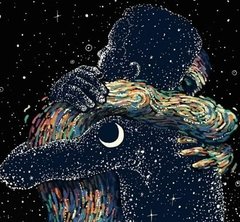
If you could dream any dream you wanted to dream...
silent thunder posted a topic in Daoist Discussion
I feel inherently, that one moment I will awaken within the 'real world' in the same way lucid I have become during the dream state lucid a multitude of times.





